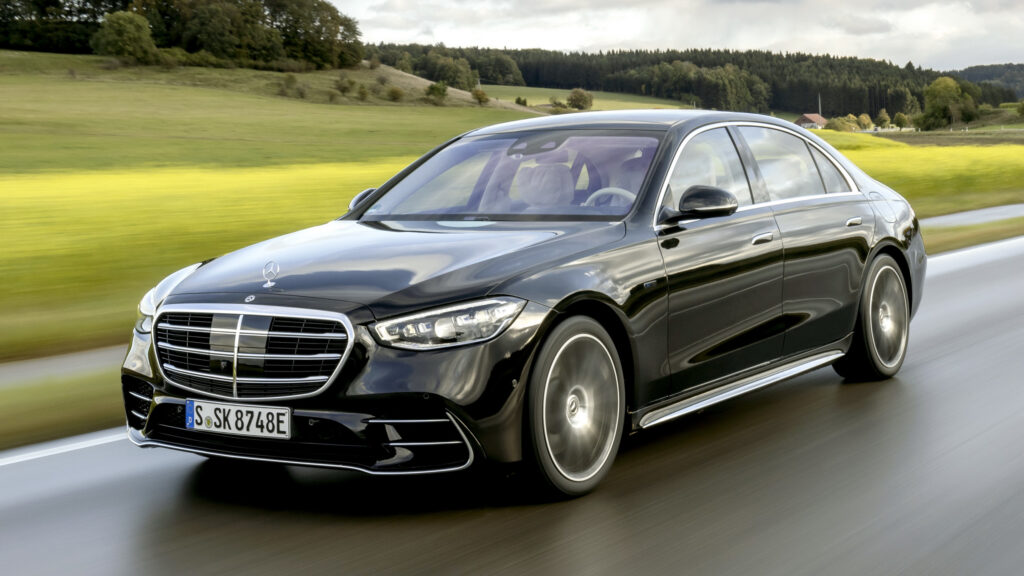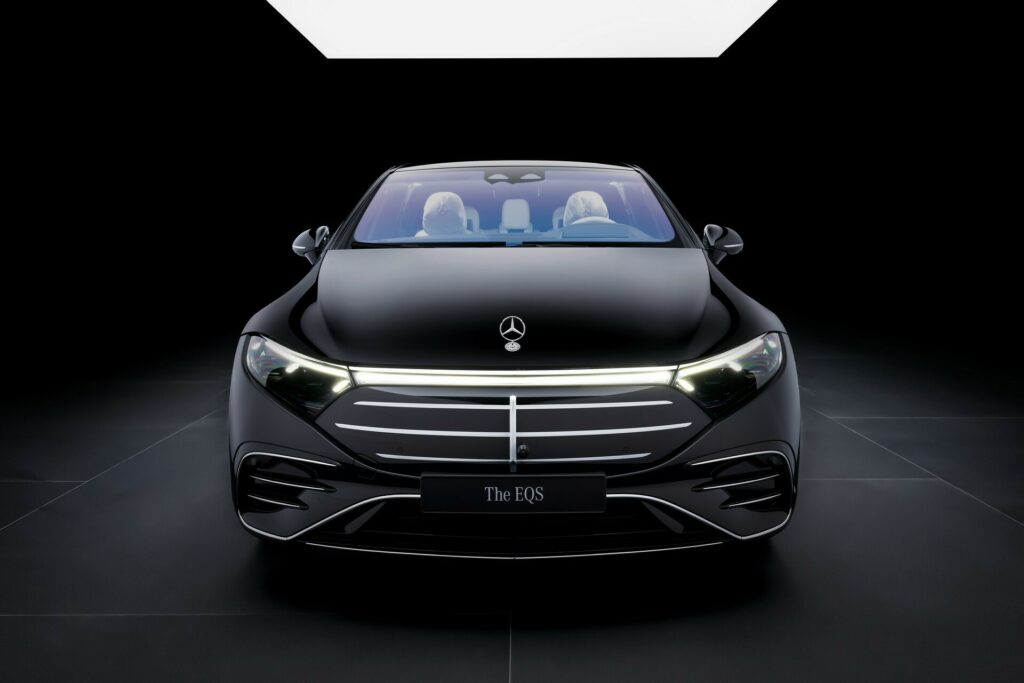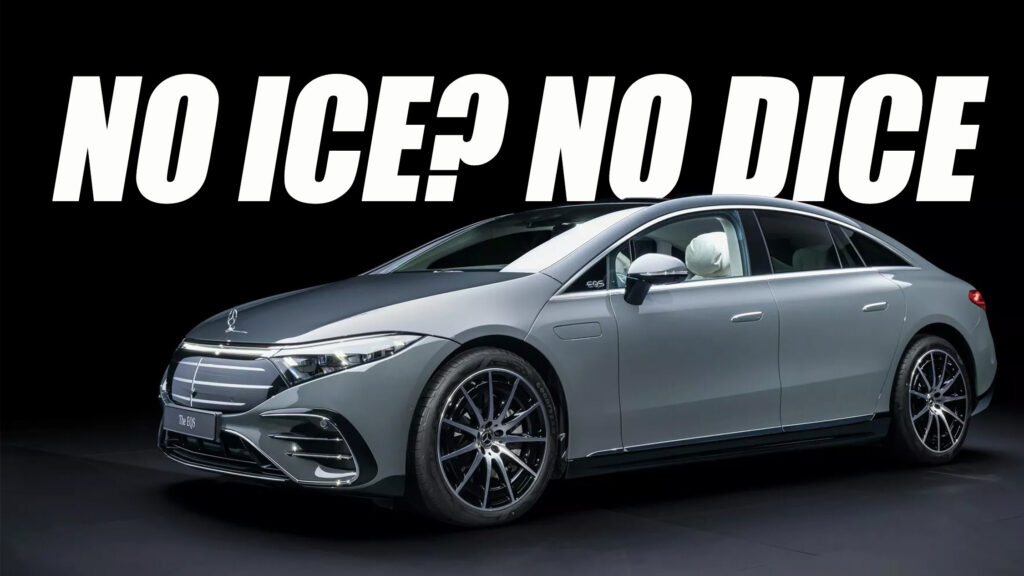- Mercedes’ wealthy buyers’ love for combustion engines is forcing the automaker to spend more on ICE development.
- Rich customers in China think gas-powered cars are more prestigious than EV equivalents.
- The automaker sold 50 times as many S-Class sedans as EQS models in the Far East, Handelsblatt reports.
Mercedes is rowing back on its commitment to go EV-only by 2030, instead funneling millions of euros into the development of new combustion engines and ICE cars. And it’s the automaker’s wealthiest customers that are forcing the change.
Buyers in China, in particular, think the prestige attached to their car is very much related not just to the badge on the nose, but what kind of power source is under the hood. And having a powerful gas motor behind the grille carries a lot more kudos than an electric motor does.
Related: Mercedes Latest Automaker To Slow EV Push, Will Keep ICE Alive Into The 2030s
The Automaker sells more than 4,000 combustion S-Class sedans in the Far East every month, German newspaper Handelsblatt reports, but it sold just 74 examples of the EQS electric sedan in May. Technically, the EQS is a great luxury sedan, one with a huge driving range and a more impressive digital display than the one in the S-Class. But Chinese buyers don’t want to know, and they don’t care much more in other countries either.
Bland banana-like styling hasn’t helped the EQS and its visually similar EQE little brother, which is also struggling to make its mark, but the fact that sales of some combustion models like the GLS have risen underlines how wealthy buyers feel about ICE power.

So Mercedes is changing tack and throwing a ton more money at the development of combustion engines and combustion-powered cars, extending their lifespans to meet projected demand into the early 2030s.
That unplanned-for development cash has to come from somewhere, however, and one of Benz’s cost-cutting measures is to scrap the development of the MB.EA-Large flagship EV platform.
Mercedes isn’t about to abandon EVs altogether, however. The smaller version of that platform, MB.EA-Medium, is still going ahead as planned, but the next generation of big, expensive EVs, the ones that the world’s luxury buyers don’t want, will have to make do with a rehash of the current EQS architecture.





